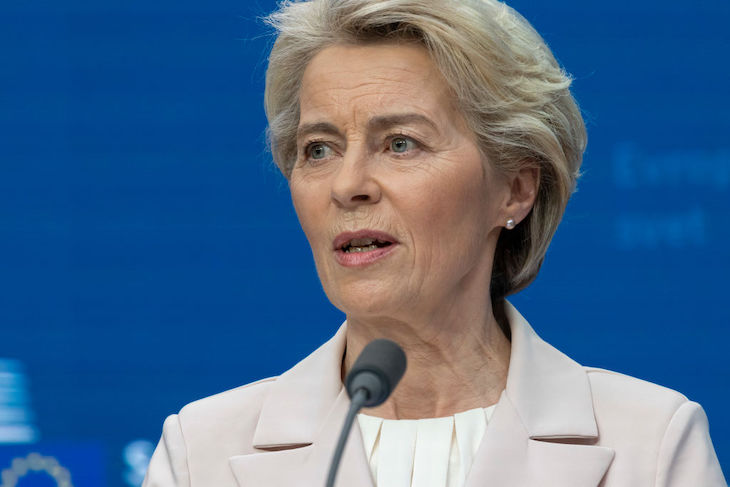Is it wise for King Charles to get dragged into the Brexit deal row? European Commission president Ursula von der Leyen is in Windsor today to sign off on an agreement over post-Brexit trade arrangements for Northern Ireland. Afterwards, von der Leyen will meet the King for tea at Windsor Castle. Such a meeting – at a time of political tension – is a mistake.
That the monarch should be above the trivial concerns of everyday politics is one of the most closely-observed rules of the British constitution. Her Majesty the Queen used this as a guiding principle throughout her many years on the throne. Indeed, when it was feared Queen Elizabeth might be compromised over the proroguing of Parliament in 2019, and a potential constitutional crisis created in the process, back channel communications between Buckingham Palace, 10 Downing Street and the wider civil service went into overdrive to prevent such a humiliation. Now her son has found himself dragged into potentially just as embarrassing and undignified a situation; once again, it’s all the Prime Minister’s fault.
For the King, this is dangerous territory
Over the last few days, there have been contradictory briefings as to whether or not King Charles was going to be meeting von der Leyen on her trip to Britain. Initially it was suggested not only that there would be a formal meeting between the two, but that the agreement signed between Rishi Sunah and von der Leyen would be known as ‘the Windsor agreement’ – thereby putting the royal imprimatur of approval upon it and daring the wider Eurosceptic fringe of the Conservative party and DUP to vote it down.
While this might have been an inspired suggestion from a PR perspective, there was a downside: it would create a constitutional nightmare if the King was to be seen as getting involved in politics. As the DUP spokesman Sammy Wilson said over the weekend:
‘Not only is the Prime Minister naive if that’s what he was planning to do, but this is a cynical use, or abuse of the King…. [it would be] dragging the King into a hugely controversial political issue, not just in Northern Ireland but even within his own party.’
Subsequently there were reports that the meeting between the two would be cancelled. But earlier today, Buckingham Palace announced that the King and von der Leyen will indeed be meeting for afternoon tea. ‘The King is pleased to meet any world leader if they are visiting Britain and it is the Government’s advice that he should do so,’ a Palace spokesman said.
For the King, this is dangerous territory. How the agreement lands with Tory MPs, the DUP and, of course, the wider public – not least in Northern Ireland – remains unclear. If the agreement is panned, and King Charles is seen to have endorsed it, even implicitly, by meeting von der Leyen, the Monarch risks being dragged into a row of the Government’s making.
Jacob Rees-Mogg has already signalled the right wing of the Conservative party’s reluctance for such a meeting to take place. ‘I think the sovereign should only be involved when things have been completed and accepted. The King gives assent to Acts of Parliament when Parliament has agreed, he doesn’t express his view on Acts of Parliament when they are going through the process,’ he told GB News over the weekend.
These are wise words. Rishi Sunak, and indeed King Charles, should have listened carefully. The European Research Group of Tory MPs won’t, of course, criticise the monarchy in a way that they are rumoured to be contemplating taking on Sunak if the agreement falls short of their expectations, yet it is nevertheless an unprecedented, febrile idea that the King might have chosen a political side.
When King Charles acceded the throne, one of the first things he promised to do was to rule in a neutral fashion. Given that, as Prince of Wales, he was interventionist to a point that many politicians felt uneasy – the notorious ‘black spider memos’ were not the actions of a man who was prepared to stay silent – this seemed an uncharacteristically self-effacing action, and many wondered if it could last.
We have the first indication that the King might be prepared to give symbolic weight to an agreement that is inevitably freighted with controversy. If it succeeds, then it demonstrates that the soft power of the monarchy continues to be an integral part of British society. But should it fail, and Sunak be forced to back down, this will be an embarrassing miscalculation – and further proof that Buckingham Palace and Downing Street should not be viewed as natural bedfellows.






Comments